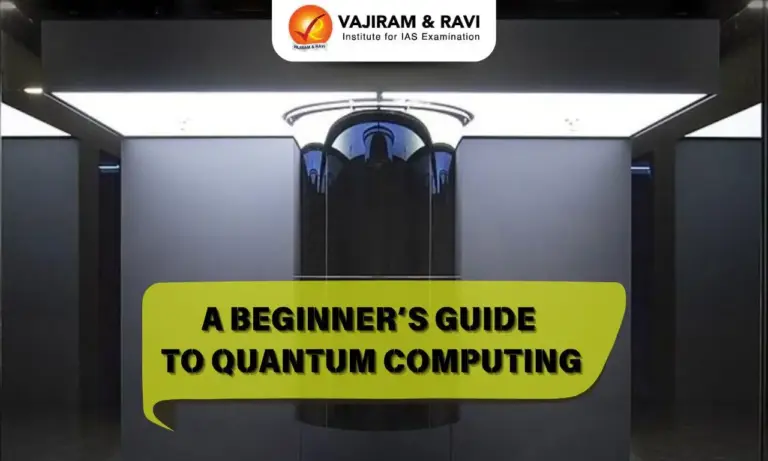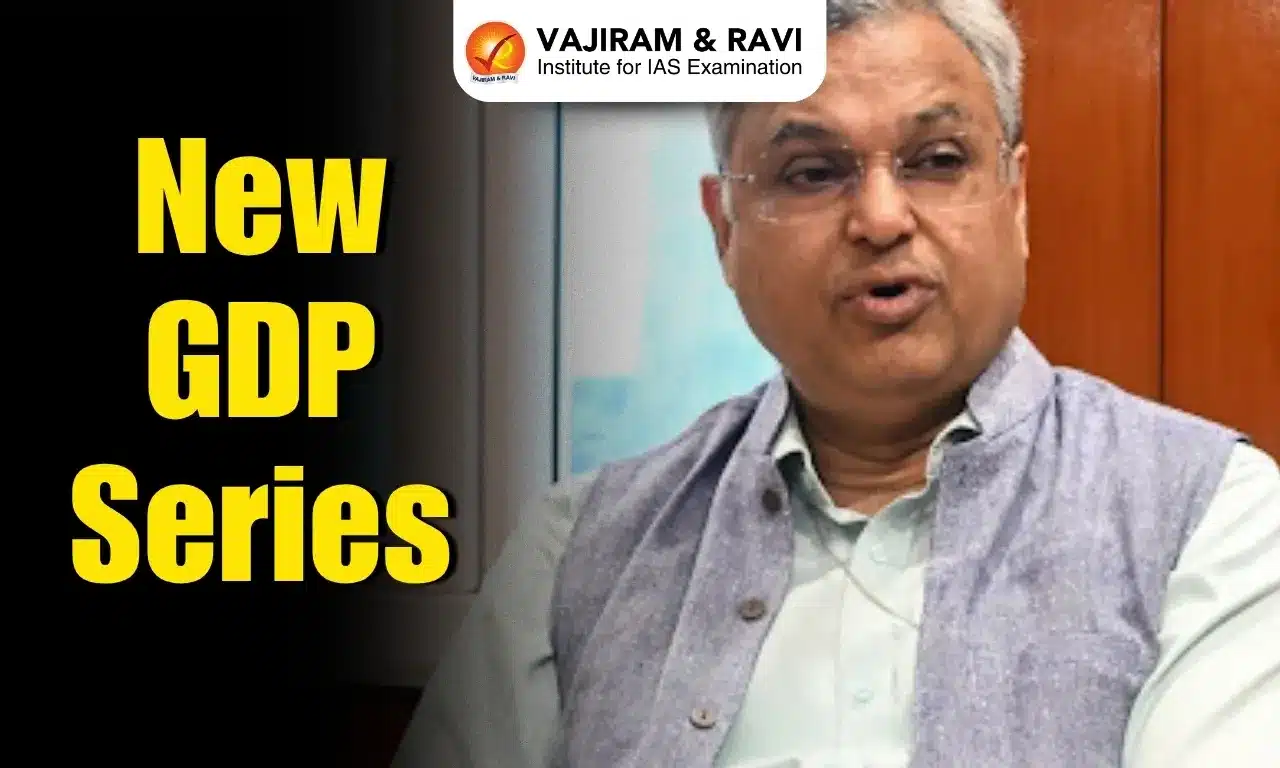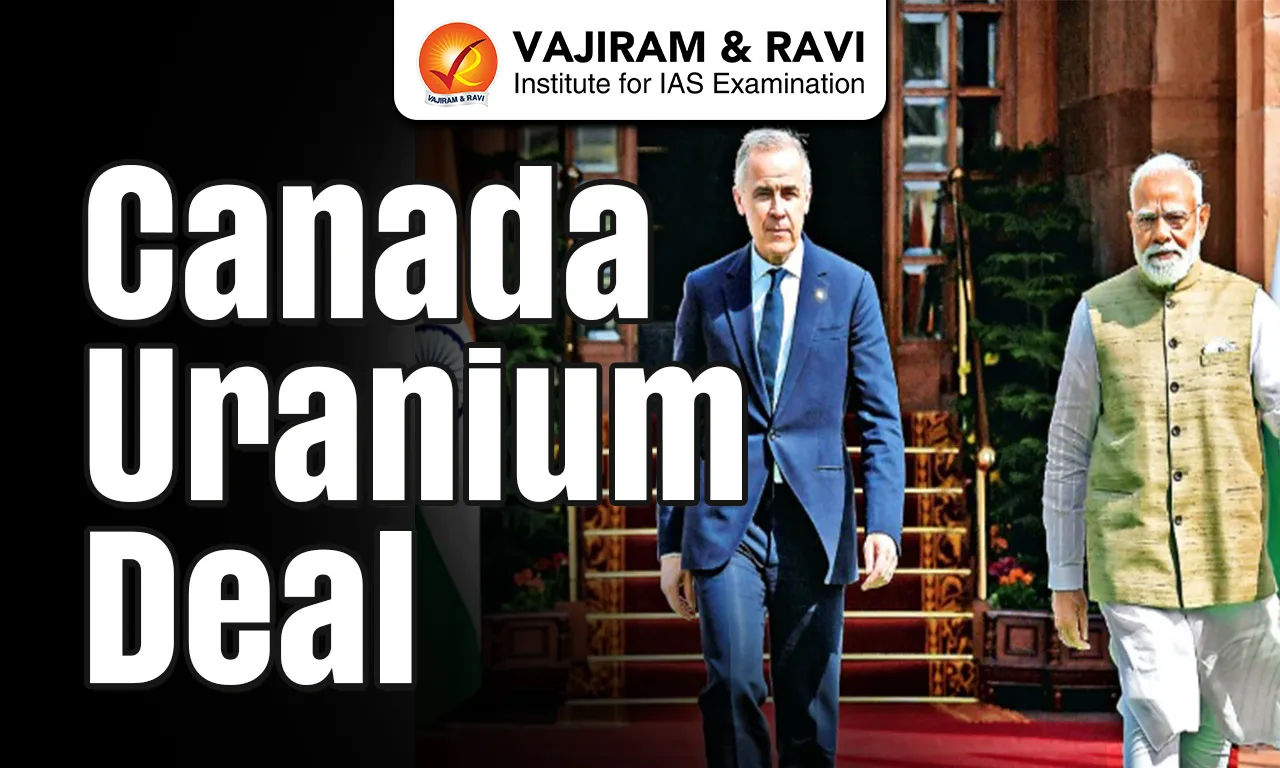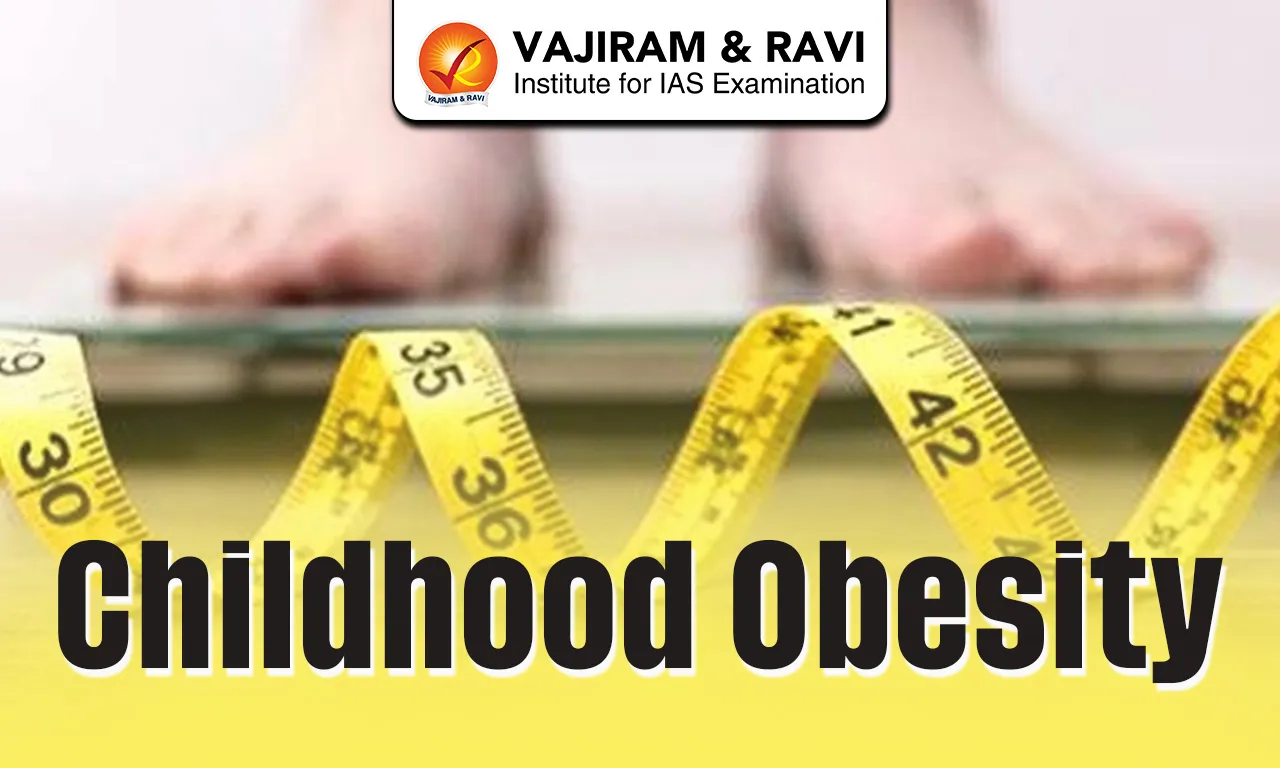What’s in today’s article?
- Why in News?
- What is Quantum computing?
- Significant Milestones in Quantum Computing
- Present Limitations of Quantum Computing
- National Quantum Mission: India’s Commitment (2023)
- The Road Ahead
Why in News?
Quantum computing, rooted in quantum mechanics, promises to solve complex problems beyond the reach of classical computers. Proposed by Richard Feynman in 1982 to simulate quantum systems, it emerged as a solution to classical computers’ limitations.
Since then, progress includes the development of qubits (using superposition and entanglement), improved error correction, and scalable hardware, paving the way for applications in cryptography, optimization, and drug discovery.
What is Quantum computing?
- Classical Computing: Bits as Units of Information
- Classical computers operate based on principles of classical physics.
- The basic unit of information is the bit, which can be either 0 or 1.
- All types of information can be represented using combinations of 0s and 1s in the binary system.
- Quantum Computing: Qubits as Fundamental Units
- Quantum computers rely on quantum bits, or qubits, for computations.
- Qubits can represent 0, 1, or a state that is partly 0 and partly 1 simultaneously.
- This ability to exist in multiple states is unique to qubits and enables quantum computations.
- Key Principles
- Superposition: A Key Quantum Principle
- Qubits can exist in a state of superposition, holding both 0 and 1 at the same time.
- Example: A spinning coin that represents both heads and tails simultaneously until it collapses to one state when observed.
- Superposition allows quantum computers to perform multiple computations at once.
- Entanglement: Quantum Correlation
- Qubits can be entangled, meaning their states are intrinsically linked, even if they are far apart.
- Measuring one qubit instantly provides information about the other, regardless of distance.
- Example: If a pair of gloves are kept in separate boxes, opening one reveals the other’s state instantly.
- Entanglement enables faster information processing through shared states.
- Advantages of Quantum Principles
- Superposition allows quantum computers to process exponentially more data than classical computers.
- Entanglement facilitates simultaneous information sharing, speeding up computations.
- These principles, rooted in quantum mechanics, unlock the immense potential of quantum computing, beyond the scope of classical physics.
Significant Milestones in Quantum Computing
- Quantum Computers vs. Classical Computers
- Quantum computers are technologically advanced but may not always outperform classical computers in every task.
- Specific tasks have been developed to demonstrate the unique capabilities of quantum computing.
- Shor’s Algorithm: Revolutionizing Factorization (1994)
- Created by Peter Shor, this algorithm can factorize large numbers in moments, compared to millions of years required by classical computers.
- Major implications for data security, as it can quickly solve problems like large-number factorization, which are used to secure encrypted data.
- IBM’s Q System One: The First Commercial Quantum Computer (2019)
- IBM introduced Q System One, the world’s first circuit-based commercial quantum computer.
- Circuit-based designs with quantum gates are versatile and suited for general quantum-computing applications.
- Google’s Sycamore Processor: Achieving Quantum Supremacy (2019)
- Google’s 53-qubit Sycamore processor solved a problem in 200 seconds that would take a supercomputer 10,000 years.
- This milestone marked quantum supremacy, where quantum computers outperform classical counterparts for specific tasks.
- Google’s Willow Quantum Chip: Scaling with Error Correction (2024)
- Google unveiled Willow, the first quantum processor with error-corrected qubits that improve as they scale.
- Quantum error correction is critical to maintaining quantum states long enough for meaningful calculations.
- Willow completed a standard test in 5 minutes, a task that would take the best supercomputers 10 trillion trillion years.
- Progress and Potential
- These milestones illustrate the rapid advancement of quantum computing, showcasing its potential to solve complex problems far beyond the reach of classical systems.
Present Limitations of Quantum Computing
- High Cost and Complexity
- Building quantum computers is extremely expensive and technically complex.
- Maintaining the stability of qubits is challenging due to high error rates and issues like decoherence caused by environmental noise.
- Need for Larger-Scale Quantum Systems
- Current quantum computers have limited qubits, but solving major problems (e.g., drug discovery, astronomical research) requires millions of qubits.
- Scaling quantum systems to such levels remains a significant hurdle.
National Quantum Mission: India’s Commitment (2023)
- Recognizing the potential of quantum computing, India launched the National Quantum Mission.
- The government allocated ₹6,000 crore over eight years to advance quantum technology and develop quantum computers.
The Road Ahead
- While the challenges are substantial, the advancements and investments highlight the clear potential and promise of quantum computing.
Q.1. What is quantum computing?
Quantum computing uses qubits instead of bits for computation. Unlike classical bits, qubits can represent 0, 1, or both simultaneously, thanks to superposition, enabling quantum computers to process data exponentially faster than classical computers.
Q.2. What is India’s National Quantum Mission?
Launched in 2023, India’s National Quantum Mission is a government initiative to invest ₹6,000 crore over eight years, advancing quantum technology and developing quantum computers, showcasing India’s commitment to the future of quantum computing.
Last updated on March, 2026
→ UPSC Notification 2026 is now out on the official website at upsconline.nic.in.
→ UPSC IFoS Notification 2026 is now out on the official website at upsconline.nic.in.
→ UPSC Calendar 2026 has been released.
→ UPSC Final Result 2025 is expected to be released soon.
→ UPSC will release the UPSC Toppers List 2025 with the Civil Services final result on its official website.
→ Check out the latest UPSC Syllabus 2026 here.
→ Join Vajiram & Ravi’s Interview Guidance Programme for expert help to crack your final UPSC stage.
→ UPSC Mains Result 2025 is now out.
→ UPSC Prelims 2026 will be conducted on 24th May, 2026 & UPSC Mains 2026 will be conducted on 21st August 2026.
→ The UPSC Selection Process is of 3 stages-Prelims, Mains and Interview.
→ Prepare effectively with Vajiram & Ravi’s UPSC Prelims Test Series 2026 featuring full-length mock tests, detailed solutions, and performance analysis.
→ Enroll in Vajiram & Ravi’s UPSC Mains Test Series 2026 for structured answer writing practice, expert evaluation, and exam-oriented feedback.
→ Join Vajiram & Ravi’s Best UPSC Mentorship Program for personalized guidance, strategy planning, and one-to-one support from experienced mentors.
→ Check UPSC Marksheet 2025 Here.
→ UPSC Toppers List 2024 is released now. Shakti Dubey is UPSC AIR 1 2024 Topper.
→ Also check Best UPSC Coaching in India


















